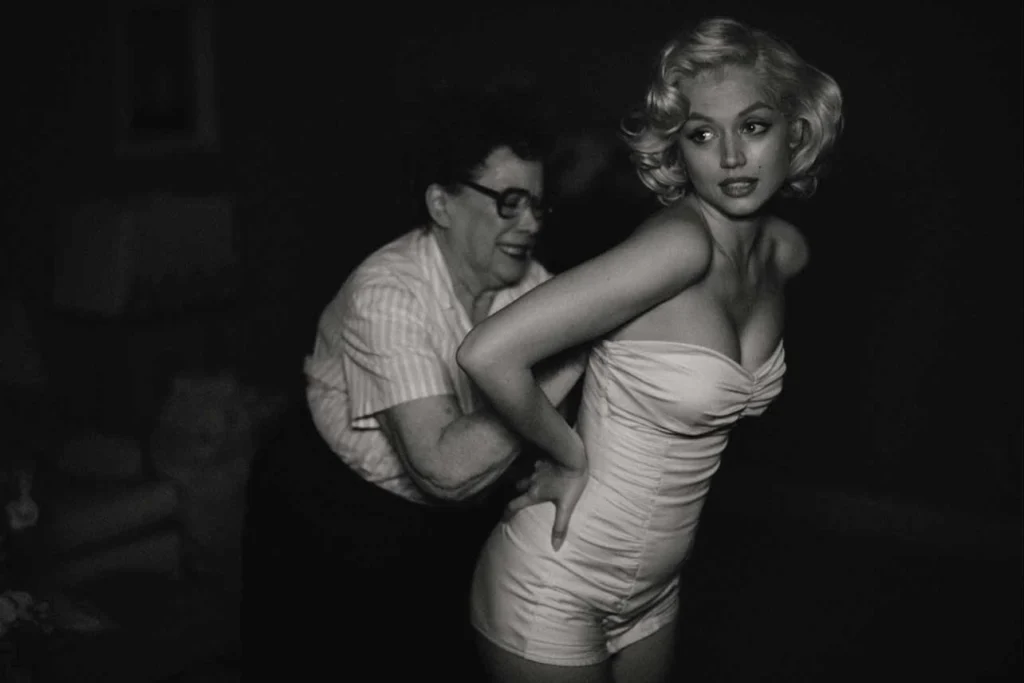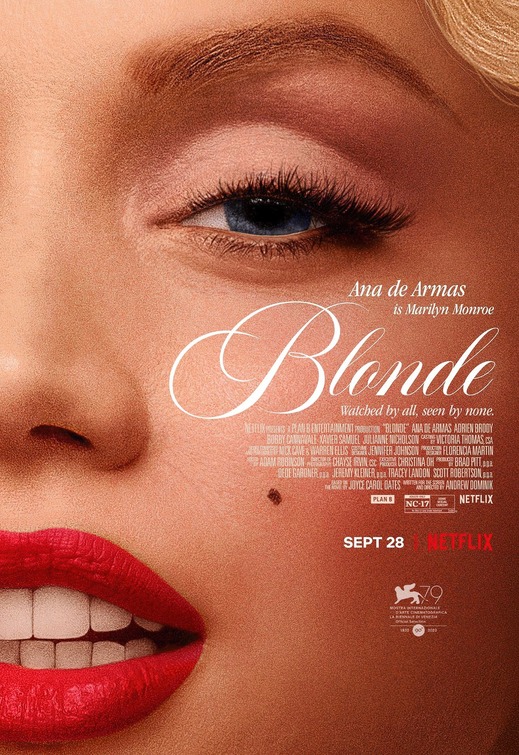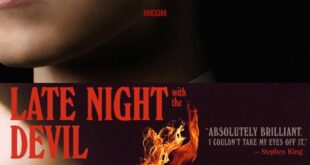Perhaps no film was released in 2022 that accompanied more controversy than Andrew Dominik’s Blonde. Blonde is not done in a typical biopic with a rise and fall. It doesn’t have the familiar narrative beats. Any time you deal with a movie about an iconic subject or person who was real, you’re bound to have to satisfy certain expectations fans have about that person and their life portrayed on screen. Strong criticism has been levied against Andrew Dominik that he’s a misogynist. That he is only focused on the negative aspects of Monroe’s life. That his film is exploitative and even cruel towards Monroe. I think that’s absolute nonsense and a total misunderstanding of the film.
Blonde tells a heavily fictionalized story of Monroe’s life (something critics of the film need to keep in mind) based on the 2000 novel by Joyce Carol Oates, a work of biographical fiction. It tells the story of Monroe’s life from childhood to her tragic death in 1962 from an overdose of barbiturates. She is heavily influenced by the childhood trauma of not knowing her father and dealing with a mentally unstable mother. The film is more of a nightmare of Monroe’s life rather than a traditional biopic. It’s assembled in a kaleidoscope of images. Dominik often switches back and forth between different aspect ratios and black-and-white to color photography. At its core, it’s a film about how childhood trauma molds someone’s life with a split personality of public and private life.

The film is at odds with the persona of Marilyn Monroe we all have. Like Dominik’s 2007 masterpiece The Assassination of Jesse James by the Coward Robert Ford, it’s about demystifying American celebrity. Unlike Jesse James, which was more melancholic and took on the feel of a Ken Burns documentary at times, Blonde is more of a dreamlike horror film. Also, Jesse James kept you away from the subjectiveness of the characters. Here in Blonde, Dominik puts you in the It’s both Kubrickian and Lynchian. There’s that same haunting quality that permeates throughout Blonde. Dominik is one of our most vivid cinematic directors, and he saturates each frame with a haunting quality. Match this with simply stunning music by Nick Cave and Warren Ellis, and it’s easy to get lost in the dream. It’s a very cerebral film that will have you questioning what reality is.
While the film elicited a polarizing response, the responses to Ana de Armas’s performance as Marilyn Monroe has received universal acclaim and an Oscar nomination for Best Actress. It’s well deserved because the film might not have worked without her brave, committed performance. She nails Marilyn Monroe to an uncanny degree. She captures Monroe’s vulnerability and sincerity perfectly. You can tell it’s an actress playing Monroe, but that only adds to the eerie, surreal quality of the film.

I’m afraid I have to disagree with many critics and pundits that the film is exploitative. As an audience, we are not supposed to take any pleasure in the traumatic things that happen to Monroe in this story, including the persistent theme of rape and misogyny. The nudity in the film is supposed to make you feel uncomfortable. It’s more about her vulnerability in a patriarchal world than taking any satisfaction in seeing Ana de Armas as Monroe naked. We are asked to feel vulnerable with her in those sequences. It’s very uncomfortable, intentionally. The idea that Andrew Dominik would take some sadistic pleasure in putting down Monroe is silly. This is a wholly empathetic portrayal of Norma Jean.
Blonde is a challenging, uncompromising, and elegantly filmed fever-pitched dream. Be warned. It’s not a film for everyone. Clocking in at 166 minutes won’t be an easy watch for many, especially those expecting a more basic biopic of Monroe. However, for those with patience and those who genuinely appreciate off-the-beaten-path cinema. It’s a gorgeously sad film to look at and experience. One I’ll likely never forget.
***1/2 out of ****

 Movie Finatics The Place for Movie Lovers
Movie Finatics The Place for Movie Lovers



